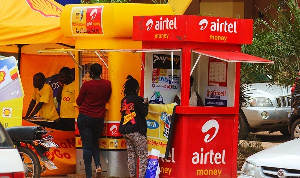Professor Anthony Amoah, a Development Economist, has urged the Government to keep the GH¢100 exemption on daily Mobile Money (MoMo) and other electronic transactions.
That, he said, would help include the poor and less privileged in the financial ecosystem and shore up revenue mobilisation for economic development.
The levy, which took effect in May 2022 with 1.5 percent rate on MoMo payments, bank transfers, merchant payments, and inward remittances has an exemption for daily transaction of GH¢100.
But, during the 2023 budget reading on Thursday, the Government announced that it would reduce the E-Levy rate from 1.5 percent to one percent, effective 2023, and remove the GH¢100 daily threshold on the tax.
Prof Amoah, in an interview with the Ghana News Agency on Friday, lauded the Government for listening to Ghanaians by reducing the rate on the levy from 1.5 percent to one percent.
He described the move to reduce the tax rate to one percent as a good attempt to block the loopholes in the tax handle.
The Development Economist, however, said the removal of the GH¢100 daily threshold would deter the poor, who did many transactions of up to GH¢100 from doing electronic transactions, and end up avoiding the payment of the tax.
He said, such a situation, would affect the Government’s revenue mobilisation and financial inclusion drive, and urged that a consideration was given to the removal of the threshold.
Prof Amoah said: “What people are now to do is to use the transport system and give money to people to be given to recipients, and that’s the alternative the poor are going to use, knowing the E-levy will bite them hard.”
“This is not a good way to go, especially around this time where we’re trying our best to resuscitate economic activities to drive growth.” Prof Amoah, who is the Acting Dean of the School of Sustainable Development at the University of Environment and Sustainable Development, said.
He asked the Government to conduct a thorough research to identify and target people who did larger volumes of transactions yet evading the levy instead of those it was trying to add to the financial inclusion ecosystem.
“In this world, without financial inclusion, poverty cannot be eradicated. So, if you’re serious about the Sustainable Development Goal (SDG) of eradicating poverty, then financial inclusion is key.” Prof Amoah said.
Recent research by the Centre for Economics, Finance, and Inequality Studies (CEFIS), showed that many Ghanaians have been avoiding the payment of tax on electronic transactions above GHS100 because of the 1.5 per cent charge.
The situation led MoMo merchants (whose number has been increasing) to “milk” the Government of expected revenue from the E-levy – as merchants negotiate with customers for a fee, making customers avoid the payment of tax.
Some MoMo merchants in Accra who have spoken to GNA on this development confirmed that they had entered into such agreements, making customers avoid paying taxes, especially on transactions amounting to GH¢1,000 and above
The 2021 Bank of Ghana (BoG) Payment Systems Oversight Annual Report noted that the total number of active mobile money customers increased by 2.4 percent year-on-year, as against a 29 percent growth in the number of active mobile money agents growing.
Source: ghanaweb.com




